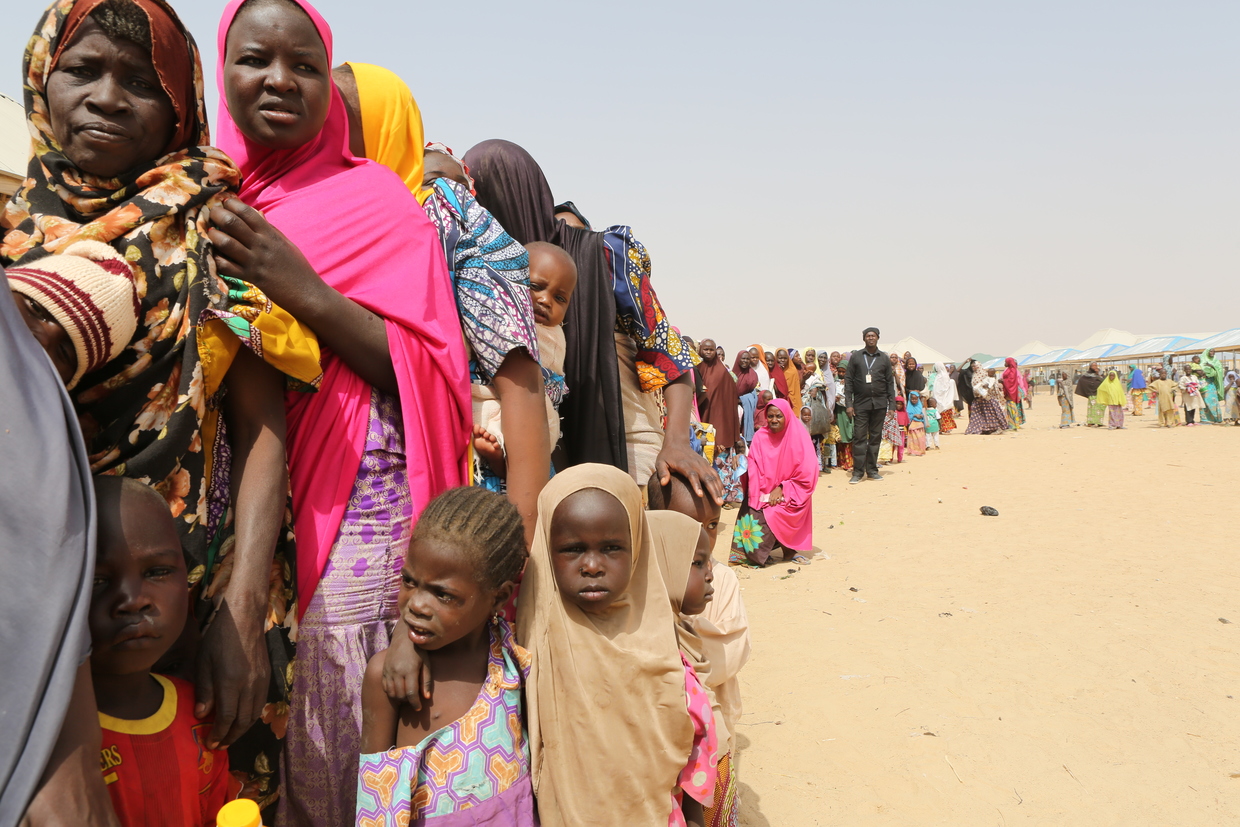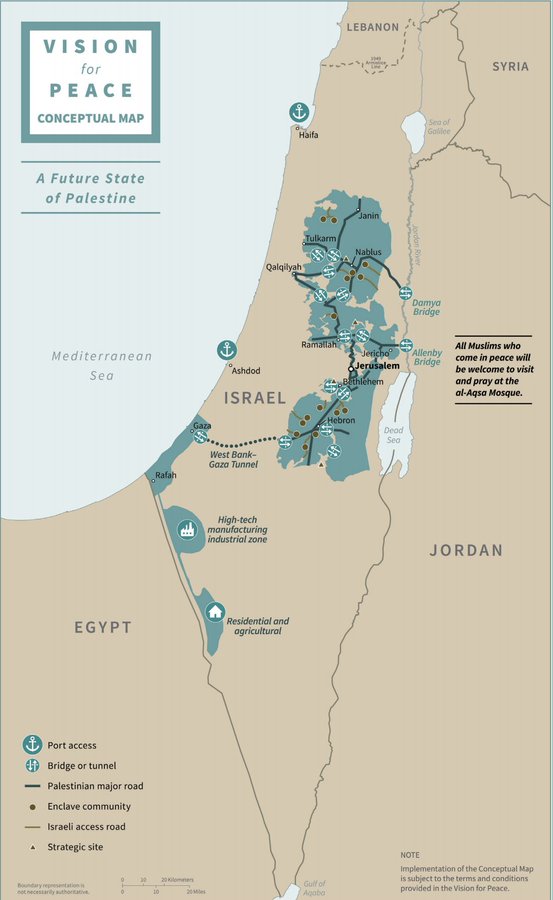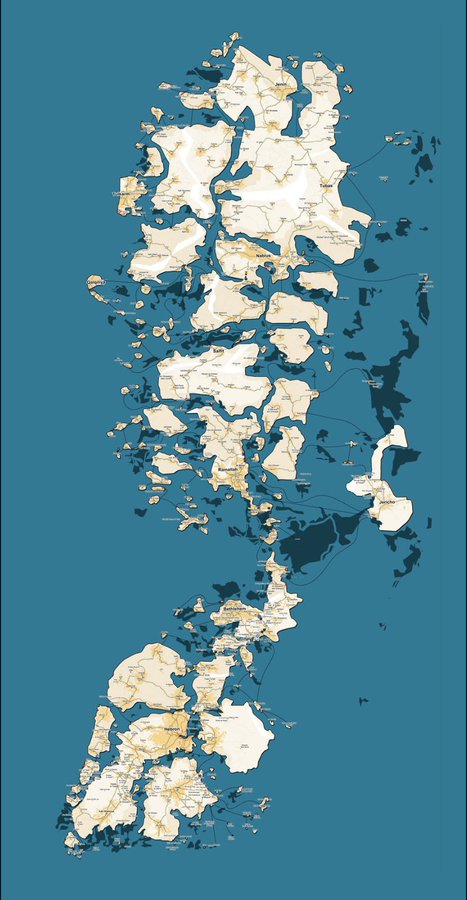US targeting of Nigeria: Is it really about terrorist problem or is America fearful of Africa’s first superpower emerging?
Darius Shahtahmasebi
Darius Shahtahmasebi is a New Zealand-based legal and political analyst who focuses on US foreign policy in the Middle East, Asia and Pacific region. He is fully qualified as a lawyer in two international jurisdictions.
His writing has appeared in VICE, Newsweek, Stuff.co.nz, the Foundation for Economic Education (FEE), the Strategic Culture Foundation, the Express Tribune, Truthout, Counterpunch, and the Ron Paul Institute for Peace and Prosperity, to name but a few.
30 Jan, 2020 16:21

The US is punishing Nigeria amid a current humanitarian crisis where the West African nation is grappling with a violent terrorist problem in the form of Boko Haram; a terrorist entity that the US indirectly helped rise to power.
The Trump administration is considering expanding its travel ban to include five more countries, including Nigeria. While there is opposition to the plan, it is still unclear to what extent this ban will go, as it may only target certain government officials, or certain types of visas.
As the media notes, Nigeria works together with the US in areas such as counter-terrorism and the intention came as a surprise to the Nigerian government, who will have to look for ways its officials can meet with investors.
It is therefore difficult to discern the official reason that has led the US to consider adding countries like Nigeria onto its hit-list, though a White House spokesman has defended the travel ban by saying it “has been profoundly successful in protecting our country and raising the security baseline around the world.”
As far as Nigeria is concerned, Trump did once say that if Nigerians came to the US, they will never “go back to their huts” in Africa.
Furthermore, the US Agency for International Development (USAID) has been making it incredibly difficult for vital humanitarian aid to reach Nigeria over the past year. A relatively new clause in all grant contracts now requires the recipient agencies to have approval of a USAID Agreement Officer in advance “to individuals whom the Recipient affirmatively knows to have been formerly affiliated with Boko Haram” or Islamic State (IS, formerly ISIS), as combatants or non-combatants.

This restriction goes against the core principles that govern humanitarian aid, one of which states that aid must be provided on need and can’t be influenced by other considerations. I’m reminded of an episode of Boston Legal in which a humanitarian-aid worker, charged as a terrorist and held at Guantanamo Bay, says under cross examination “When you’re trying to do aid work in a Taliban-controlled area, deals have to be made.”
The US appears to be targeting Nigeria in more ways than one, though this latter development has not been highlighted by the mainstream media. So are these latest moves simply due to Trump’s profoundly racist remarks, or is there something else at play here?
Hitting Nigeria where it hurts
Nigeria is facing one of the world’s gravest humanitarian crises as a result of a conflict which has dragged out for approximately ten years. As a result of the relentless violence perpetrated by the terror outfit known as Boko Haram, 7.1 million people are in need of life-saving assistance, and 1.8 million people have been uprooted from their homes (the majority of whom are women and children).
In total, the conflict in Nigeria has killed at least 27,000 civilians. Even as I type, communities in the West African nation are still being targeted by violent attacks.
Nigeria was already struggling with a pending humanitarian crisis before the conflict erupted over ten years ago. Six states in north east Nigeria were already lagging behind the rest of the country in terms of their socioeconomic development. The situation affecting these states now has been described as “famine-like.”
According to the UN, insecurity in parts of Nigeria has played a major role in the reduction of humanitarian aid. Essentially, the new USAID requirements are making an already delicate situation even worse. For those of you who are unsure about this as a conclusion, consider that humanitarian funding to southern Somalia dropped by 88 percent from 2008 to 2010 after the US added Al-Shabaab to its designated terror group list, criminalizing the provision of anything that might be considered material support. As far as we can see, once the US puts restrictions on humanitarian aid that go against the very principles guiding the flow of humanitarian aid, we can expect to see less and less of it.
ALSO ON RT.COMBlaze rips through Lagos street market as traders race against time to save their goods (PHOTOS, VIDEOS)The US role in the Nigerian situation
One could argue that the effect US foreign policy has on ordinary Nigerians is an unintended consequence of America’s reluctant duty as the world’s superpower police force to strangle and eradicate terrorism throughout the African continent. Though, this assertion would have to be tested against the available evidence, particularly when it comes to the US’ role in the region.
Nigeria’s deadly terror group Boko Haram was not always the fully-fledged menace it is today. It was only after a major US-NATO venture in North Africa that terror groups such as Boko Haram began to thrive.
After the US toppled Muammar Gaddafi’s leadership in Libya, his armories were looted and the proceeds were spread rampantly across the country. In an article published by The Week entitled ‘Who’s financing Boko Haram?’ Peter Weber noted that Boko Haram’s weapons “have shifted from relatively cheap AK-47s in the early days of its post-2009 embrace of violence to desert-ready combat vehicles and anti-aircraft/anti-tank guns.” A UN report conducted in early 2012 that the weapons Boko Haram was starting to acquire were being smuggled from Libya.
Statistically, the terror group is now far more deadly than the terror network IS. As secretary of state under the Obama administration, it was Hillary Clinton who repeatedly refused to place Boko Haram on the US official list of terror organizations, despite the fact that the CIA, the FBI and the Justice Department requested her State Department to do so multiple times.
When taken at face value, it makes little sense for the US to punish a country facing a crisis that the powers-that-be in Washington contributed to quite significantly. But what else have we come to expect from a country that allegedly closely works with Al-Qaeda, even to this day?
ALSO ON RT.COMChina sees Trump’s trade war as an opportunity to boost ties with AfricaWhy target Nigeria?
We can never know for sure the reasons that Nigeria is in the crosshairs of the US foreign policy establishment, but we can always speculate based on what we know about the West African nation and the overarching geostrategic concerns that typically govern US foreign policy.
Nigeria is Africa’s largest oil producer and its largest economy, beating out South Africa for the top spot. Despite the many real issues plaguing the country, the International Monetary Fund (IMF) has already projected that its gross domestic product could expand by 2.5 percent this year.
Its population is growing more than twice the speed of the world average and in just a few decades it will surpass that of the US. Whether or not this will be a positive development for the country remains to be seen, but the nation is showing a lot of signs that lead to countries like China and India outputting rapid economic growth over the last few years.
Nigeria’s largest export is no longer oil, but its people, who have sent back home roughly $40 billion in remittances. While Trump is picturing people from “shit-hole countries” exploiting the West and refusing to return to their “huts,” these people also obtain advanced qualifications and have spent half a billion dollars per year in the process.
ALSO ON RT.COMRussia to bring back to life Nigeria’s major steel plant project, abandoned for decades
To put it simply, Nigeria has the potential to become Africa's first superpower. If there’s one thing the last few decades has taught us, it’s that the US hates to see African nations developing on their own accord. If you examine the reasons why the US targeted Libya for regime change and turned it into a failed state in the first place, it will become apparent that having strong, financially dependent countries in this region is not an option for the US war machine. Combine Nigeria’s potential for success and its close relations with US economic foes like China and what we have is a regime-change accident waiting to happen.
Of course, the US can turn up the pressure incrementally, beginning with travel bans and bans on humanitarian aid rather than resorting to an all-out war to contain its future rivals.
But what happens if Nigeria begins to copycat China’s economic success over the next few decades and develops closer relations with American adversaries. Will we continue to see an increased US military presence in Nigeria, and to what end?
My bet is that if the US has its way – and given the measures the US has recently taken – Nigeria will continue to struggle with issues like terrorism and poverty for years to come.
The statements, views and opinions expressed in this column are solely those of the author and do not necessarily represent those of RT.
![Ze'ev Jabotinsky [Wikipedia]](https://i1.wp.com/www.middleeastmonitor.com/wp-content/uploads/2020/01/PORTRAIT_OF_ZEEV_JABOTINSKY._%D7%A4%D7%95%D7%A8%D7%98%D7%A8%D7%98_%D7%96%D7%90%D7%91_%D7%96%D7%91%D7%95%D7%98%D7%99%D7%A0%D7%A1%D7%A7%D7%99.D850-058-scaled-e1580114900711.jpg?resize=1200%2C800&quality=85&strip=all&ssl=1)
![Interior Minister Matteo Salvini wears a police jacket on 18 January 2019 in Afragola, Italy [Ivan Romano Getty Images]](https://i2.wp.com/www.middleeastmonitor.com/wp-content/uploads/2019/01/GettyImages-1096135984.jpg?resize=933%2C622&quality=85&strip=all&ssl=1)




